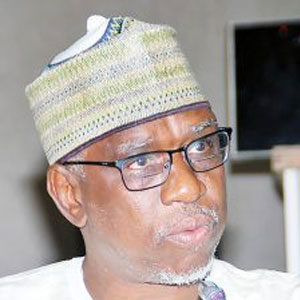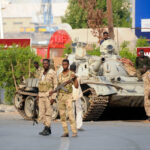
The NUC boss stated this at a meeting with the leadership of the National Postgraduate Medical College led by the President, Professor Akinsunya Osibogun, penultimate in his office.
According to a statement published on the website of the NUC, Professor Rasheed explained that based on current trends, there must be a way to encourage research in clinical sciences by professionals like medical scientists, pathologists, non-clinical dermatologists, non-clinical medical laboratory scientists, biochemists, medical microbiologists and professions that go under the cover of health science to be allowed to make publications from their research capable of bringing about solutions to our revolutionary health issues.
Due to the discovery, he said there was a strong relationship between PhD and quality services in every sector.
“The researchers should be awarded doctorate degree based on quality publications from research made in any specific core clinical area”. This, he said, was more important where a clinical sample could be used to make astounding breakthroughs that would assist in overcoming most of the health challenges in the country.
While wishing the President of the College a successful tenure, he assured the team of NUC’s commitment to strengthening the already existing relationship between them, noting that the Commission at present does not have any qualified medical personnel in its services but, had through sabbatical scheme procured three doctors who are helping in matters regarding health.
He commended the President and the College in particular for “continuously bridging the gap in the profession in line with current trends in order to ensure that young ones coming behind find a robust health sector that would give them the best skills to operate effectively within the country and internationally”.
Professor Rasheed stressed the need to have a comprehensive picture of the status of medical education in the country, which, he said, had triggered the urgent need for an inspection visit to medical universities by the Commission, to ascertain their current state.
He indicated that all pending medical universities’ committee reports shall be looked at by a committee of medical experts and non-medics while the position on the matters as taken by the Commission would be communicated to the concerned universities.
He said, even though the Commission’s relationship with the association had been very fruitful for a while, there were various gaps that existed due to a lack of adequate information by the NUC and the universities that needed to be bridged.
The NUC, he said, would keep itself abreast with the modus operandi of the Medical and Dental Council of Nigeria, while the most elevated in the medical field should get themselves acquainted with the workings of the Commission’s regulatory role and desist from having a fixed mindset on how to run their programmes. This, he said, would go a long way in impacting more positively on medical education in the country.
The Executive Secretary said just last week he received the Provost of the Colleges of Medicine in West Africa and the highlight of their discussion was the new Core Curriculum Minimum Academic Standard and the Commission’s resolve to not restrict the MBBS and Dental programmes to the 30 per cent freedom for innovation given to the other 16 disciplines.
This, according to him, was to grant them the flexibility of uniformity and variations because human environments differ.
He suggested that due to the peculiarities of each environment, the medical professionals should be adventurous in creating some differences to justify the social and economic peculiarities of the environment the programme were taught.











